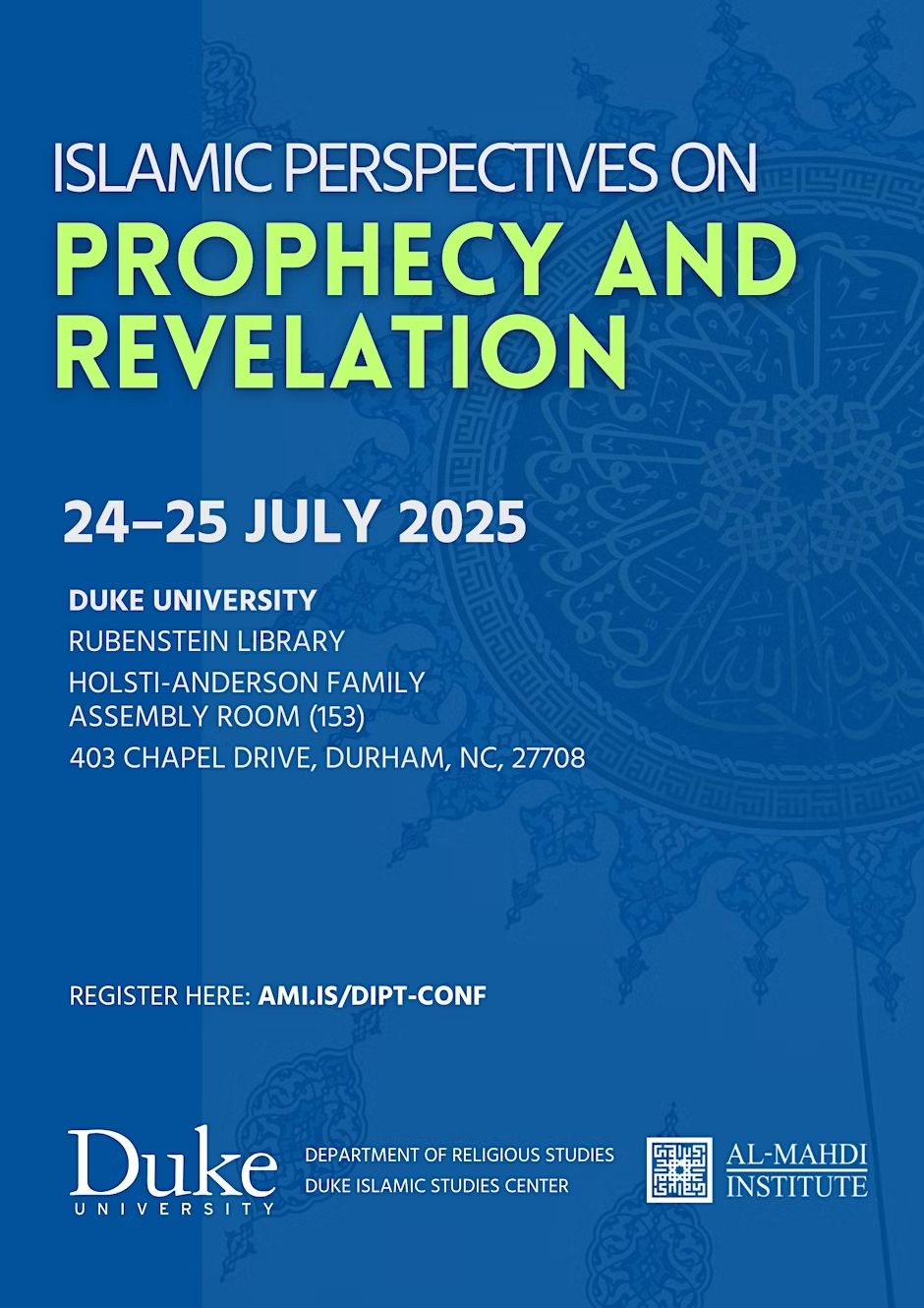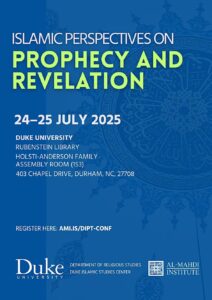International Conference on Islamic Perspectives on Prophecy and Revelation

Date/Time
Date(s) - 07/24/2025 - 07/25/2025
10:30 am - 7:00 pm
Location
Duke University
Categories
Cost:
USD
Contact Person:
Email:
Website:
https://www.eventbrite.com/e/international-conference-on-islamic-perspectives-on-prophecy-and-revelation-tickets-1398730242809?aff=ebdssbdestsearch&keep_tld=1
Phone:
Organization:
Al-Mahdi Institute
DURHAM, NC
AMI’s Department of Islamic Philosophy and Theology, together with the Department of Religious Studies and Duke Islamic Studies Centre at Duke University, is delighted to open registration for its second international conference on ‘Islamic Perspectives on Prophecy and Revelation.’ The conference, convened by Dr Wahid Amin and Prof. Mohsen Kadiver, will be held over two days, from 24th to 25th July 2025 at Duke University, Rubenstein Library, Holsti-Anderson Family Assembly Room (153), 403 Chapel Drive, Durham, NC, 27708.
Together with the belief in one God and that life here and now is a mere prelude to an eternal afterlife, the belief in prophecy is regarded as one of the fundamental tenets of Islam. Indeed, it is through the revelatory experiences of Muḥammad that Muslims derive the fundamental articles of faith concerning the nature of God, afterlife, resurrection, and notions such as heaven and hell. Prophecy and revelation thus constitute the principal epistemological foundation of Islam. However, unlike other doctrinal issues, the phenomenon of prophecy in Islam has not been sufficiently problematised or discussed in secondary literature in Western languages.
This conference aims to shift the focus and methodology of studying prophecy in Islam from the historical study of the Prophet Muḥammad to the phenomenon of prophecy/revelation itself, thereby directing attention to the vast body of literature in Islam that investigates the philosophical dimensions of prophecy across different Islamic disciplines. The Prophet was both the recipient of a personal revelation and the primary interpreter of that revelation’s contents. His experiences and subsequent teaching constitute one of, if not the main, sources of religious knowledge for Muslims. In the modern period, contemporary scholars of Islam have challenged traditional concepts and theories of prophecy by placing greater emphasis on the Prophet’s own subjectivity and contextual setting, thereby challenging previously held notions about how revelation and scripture ought to be interpreted.
To achieve a more holistic and nuanced understanding of prophecy in Islam, this conference explores the philosophical issues surrounding prophecy and revelation as these have been discussed in various Islamic disciplines. By engaging with modern critiques and philosophical dilemmas, the conference aims to provide deeper insights and responses to these issues, reaffirming the significance of prophetic experiences in a rapidly changing world. This dialogue is crucial for fostering a nuanced understanding of how these ancient concepts can be meaningfully integrated into modern thought and practice, helping to bridge the gap between traditional beliefs and contemporary intellectual concerns.
VIEW FULL CONFERENCE ITINERARY
Tickets:
Registration is free and includes breakfast and lunch on both days.




